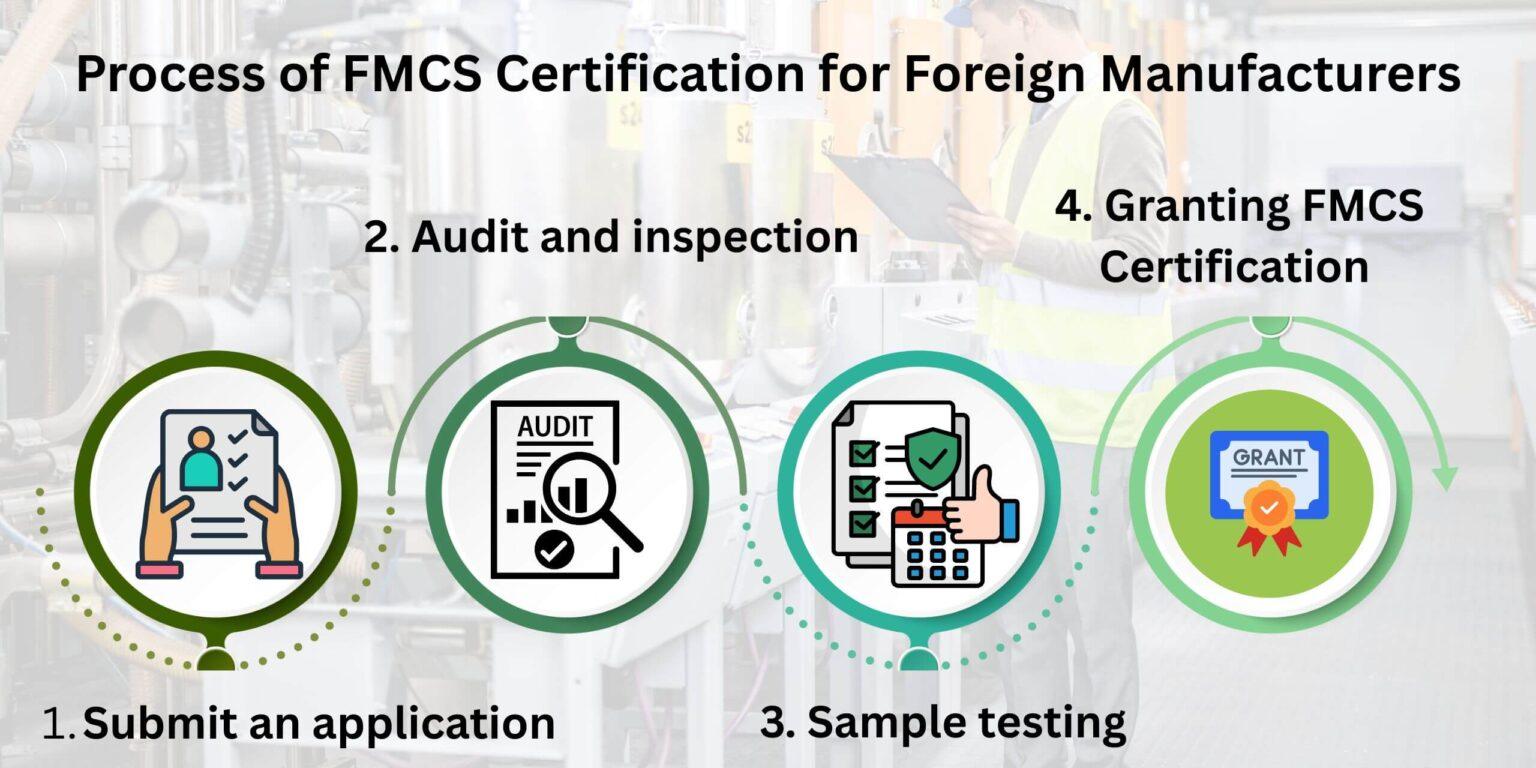FMCS Mark Certification Guide: BIS Approval for Global Brands

-
FMCS Mark Certification, also called the Foreign Manufacturers Certification Scheme, is issued by BIS for overseas companies.
-
It allows foreign brands to sell regulated products in India. This guide explains FMCS full form, process, costs, and compliance in detail.
Introduction
Last year, one of our Korean clients manufacturing household appliances faced a frustrating roadblock. Despite strong demand in India, customs stopped their shipment because the products lacked BIS FMCS Certification. "Isn't the ISO and CE marks sufficient?" asked the client. However, India requires its own certification program, the Foreign Manufacturers Certification Scheme (FMCS), to ensure quality and safety.
This is a typical problem for international businesses interested in the Indian market. In this blog, we’ll decode everything about FMCS Mark Certification, its benefits, process, and practical insights—so you don’t face last-minute surprises at Indian ports.
What is FMCS Certification?
The Foreign Manufacturers Certification Scheme is known as FMCS. Through a program administered by the Bureau of Indian Standards (BIS), international manufacturers are permitted to use India's standard mark, the ISI Mark, on their products.
In a nutshell, it's India's translation of "Prove that the regulated goods you wish to sell here meet our safety and quality standards."
Summary: In conclusion, FMCS Certification is the process by which BIS authorizes foreign producers to legally sell ISI-marked products in India.
Why is FMCS Mark Certification Important?
Global companies sometimes underestimate this certification. However, without FMCS BIS approval, products can be rejected at customs, leading to financial losses and reputational damage.
Think of FMCS like a passport for your products—without it, crossing into India’s market is impossible.
Key Benefits:
-
Legal Entry: Guarantees that your products pass Indian customs without incident.
-
Market Trust: ISI Mark boosts brand credibility among Indian consumers.
-
Safety Compliance:Exhibits conformity to Indian standards in addition to international ones such as ISO.
-
Competitive Advantage:Certified suppliers are preferred by Indian distributors.
Who Needs FMCS Certification?
Any foreign company that manufactures products under BIS’s regulated list must apply.
Examples include:
-
Electrical appliances
-
Steel products
-
Cement
-
Household goods
-
Chemicals
A German steel company recently secured FMCS Certification with our assistance, and within six months, they increased their sales in India by 40%.
FMCS Full Form Explained
The FMCS Full Form is Foreign Manufacturers Certification Scheme. This is often confused with other BIS schemes, so let’s clarify:
-
CRS (Compulsory Registration Scheme): For electronics & IT products.
-
FMCS: For overseas manufacturers of regulated goods under ISI Mark.
FMCS BIS Certification Process
When divided into steps, the process is manageable even though it might seem overwhelming:
Step 1: Sending in an application
-
Apply to BIS with all required documents.
-
Nominate an Authorized Indian Representative (AIR).
Step 2: Factory Audit
-
BIS officials visit your foreign manufacturing site.
-
They inspect production processes, quality systems, and testing facilities.
Step 3: Product Testing
-
Samples tested at a BIS-approved lab in India.
-
Results compared with Indian standards.
Step 4: Grant of Licence
-
On successful compliance, BIS issues FMCS certification.
-
Manufacturer can now affix the ISI Mark.
FMCS BIS follows a 4-step process: application, audit, testing, and licensing.
Documents Required for FMCS Certification
Foreign manufacturers must submit a set of detailed documents:
-
Factory registration certificate
-
Manufacturing process flowchart
-
Test reports
-
Quality control documents
-
Nomination of AIR in India
Timeline & Validity
-
Timeline: Typically 6–9 months (audit schedules can cause delays).
-
Validity: 2 years initially, renewable thereafter.
Costs Involved in FMCS BIS Certification
Costs vary depending on product type, testing, and travel expenses for BIS officials. Broadly, expenses include:
-
Application fees
-
Audit charges
-
Testing fees
-
Licence fees
Real-World Challenges in FMCS Certification
Many foreign manufacturers face these hurdles:
-
Language Barriers during factory audits
-
Logistical Delays in sending product samples to India
-
Document Gaps due to different international formats
But with expert guidance, these can be resolved. We’ve helped companies from Japan, USA, and Europe simplify the process through structured documentation and pre-audit checks.
How FMCS Differs from Other BIS Schemes
|
Feature |
FMCS |
CRS |
Domestic ISI Mark |
|
Who applies |
Foreign Manufacturers |
Foreign & Indian |
Indian Manufacturers |
|
Products covered |
Regulated goods (steel, cement, appliances) |
Electronics & IT |
Domestic regulated products |
|
Audit required |
Yes |
No |
Yes |
Practical Tips for Securing FMCS BIS Approval
-
Start Early: Begin certification 6–8 months before exports.
-
Appoint a Trusted AIR: Your Indian representative is your bridge.
-
Pre-Audit Check: Run an internal audit before BIS visits
-
Stay Updated: BIS standards are revised periodically.
Conclusion
It's exciting to enter the Indian market, but if FMCS Mark Certification is not obtained, it could quickly turn into a costly mistake. The Foreign Manufacturers Certification Scheme (FMCS BIS) acts as a gateway for global brands, ensuring security, dependability, and smooth market entry.
If your company plans to export regulated products to India, start preparing for FMCS certification early. Our team has guided dozens of foreign brands through this process—let’s make your journey seamless too.
Why Choose Diligence Certifications?
Securing FMCS BIS Certification can be complex, especially for overseas manufacturers. From paperwork and application submission to factory audit coordination and license renewal, Diligence Certifications streamlines the process with end-to-end assistance. Our background working with international clients in the USA, Europe, Korea, and Japan guarantees seamless communication with BIS and no compliance gaps, saving you money and time.
- Art
- Causes
- Crafts
- Dance
- Drinks
- Film
- Fitness
- Food
- الألعاب
- Gardening
- Health
- الرئيسية
- Literature
- Music
- Networking
- أخرى
- Party
- Religion
- Shopping
- Sports
- Theater
- Wellness


